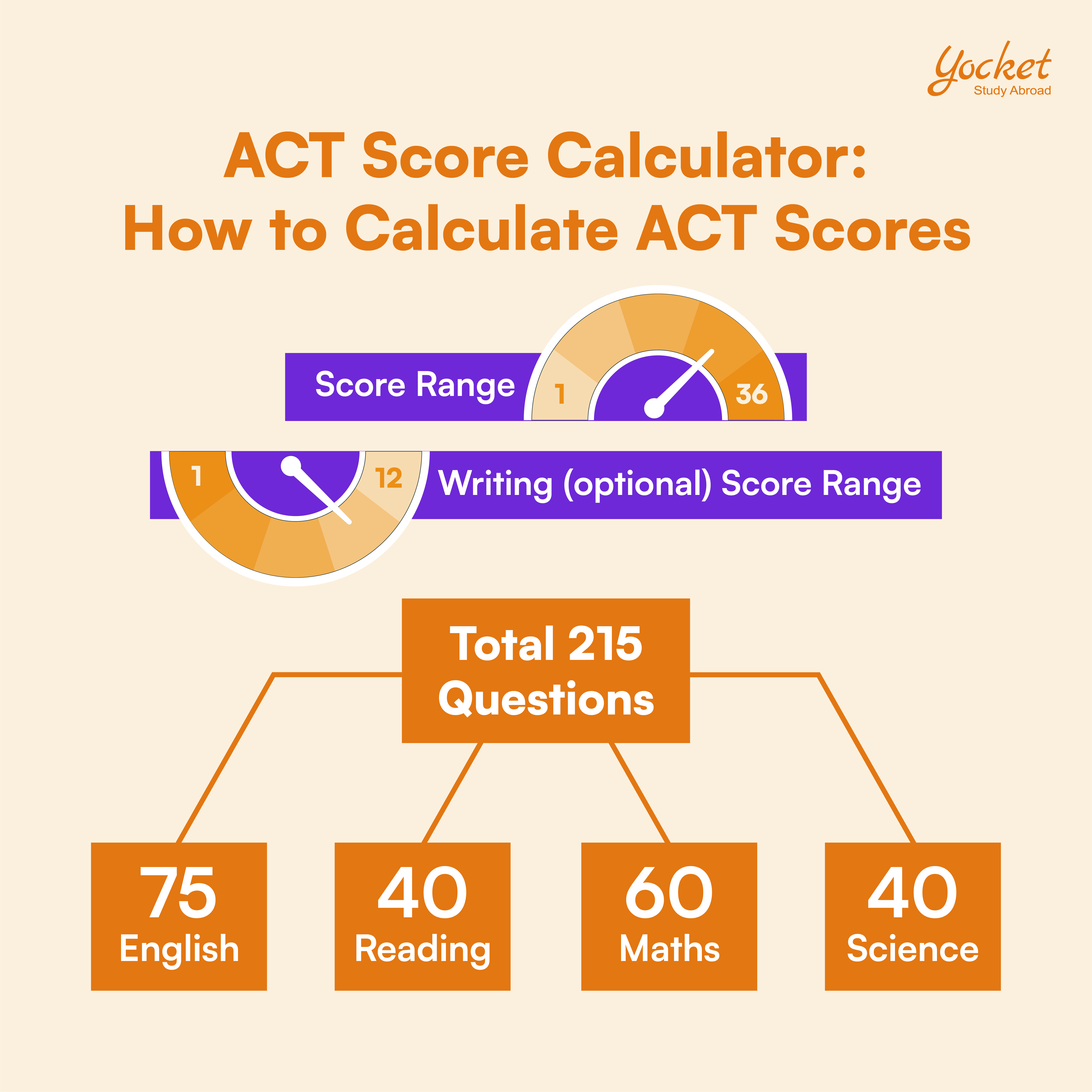The ACT exam syllabus is split into the following sections:
This section evaluates your proficiency in the English language. It encompasses various aspects, including
- Usage/Mechanics- Assessing your knowledge of punctuation (e.g., commas, periods), grammar rules, and sentence structure.
- Rhetorical Skills- Evaluating your ability to effectively develop a topic, organise ideas logically, and select appropriate style and tone in writing.
This segment tests your mathematical skills. It covers a range of math topics, including
- Algebra/Elementary Algebra- Encompassing operations with numbers, fractions, decimals, and fundamental algebraic concepts.
- Intermediate Algebra/Coordinate Geometry- Focusing on algebraic expressions, equations, functions, and coordinate geometry.
- Plane Geometry/Trigonometry-Addressing geometric properties, proofs, and introductory trigonometry.
In this section, you will read passages and answer related questions. These passages fall into four categories:
- Social Studies- Covering history, psychology, sociology, and more topics.
- Natural Sciences- Addressing biology, chemistry, physics, and related areas.
- Literary Narrative or Prose Fiction- Presenting passages from novels, short stories, and personal essays.
- Humanities- Encompassing fields such as art, music, philosophy, and language.
This section includes scientific data interpretation and reasoning. It consists of three types of passages:
- Data Representation- Focusing on the analysis of graphs and tables.
- Research Summaries- Emphasizing comprehension of experiments and their outcomes.
- Conflicting Viewpoints- Comparing different scientific hypotheses or perspectives.
You have the choice to include an optional Writing section.
In this segment, you will write an essay responding to a provided prompt. The primary evaluation centres on your ability to articulate and substantiate your ideas effectively in written form. Remember that thorough preparation for each section is crucial to achieving success on the ACT!






